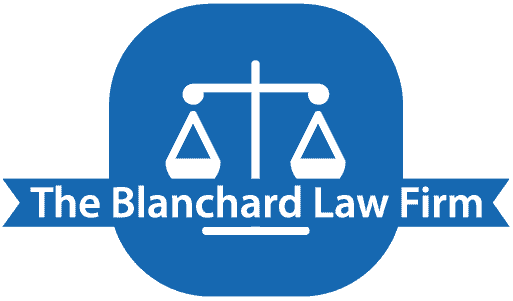
21 Nov How Are Debts and Taxes Handled in Probate?
Probate Process Of Debts and Taxes
When a person passes away, it is natural to ponder the fate of their assets and debts, particularly if they did not leave behind a will. This is where probate steps in, serving as a legal process that manages the deceased individual’s financial obligations and taxes. It is crucial to grasp the intricacies of this procedure. In this comprehensive article, we will explore the question: how are debts and taxes handled in probate?
What Exactly Is Probate?
To understand how are debts and taxes handled in probate, we must first understand what exactly probate is. Probate is a legal process that occurs after an individual passes away. It involves the validation and execution of their will, if one exists, to ensure the orderly distribution of their assets and settlement of debts. The court oversees probate proceedings, appointing an executor (named in the will or appointed by the court) to manage the deceased person’s estate.
During probate, the executor identifies and appraises the deceased person’s assets, notifies creditors of the death, settles outstanding debts, and distributes the remaining estate to beneficiaries as specified in the will. Probate aims to provide a transparent and legal framework for the transfer of assets, resolving financial matters, and ensuring the deceased person’s wishes are carried out in an organized manner.

Settling Outstanding Debts In Probate
Typically, the first step in probate is the settling of debts. The executor’s initial task is to meticulously compile a comprehensive list of the deceased’s outstanding debts, meticulously documenting each and every financial obligation. This includes mortgages, loans, credit card debts, and any other monetary liabilities.
Transparency is of utmost importance during this process. Creditors must be promptly notified of the individual’s passing, allowing them the opportunity to file claims against the estate. This ensures a fair and just settlement of debts, with all parties involved having the chance to present their claims and receive their rightful share.
Using the estate’s funds, the executor prioritizes and methodically settles the outstanding debts. Careful consideration is given to adhering to jurisdictional laws, ensuring an equitable distribution of the estate’s assets. This meticulous approach guarantees that all debts are settled in a manner that upholds the principles of fairness and justice.
Tax Implications in Probate
After a person’s debts have been settled, it is crucial to carefully evaluate the tax implications that may arise. Depending on the value of the estate, both federal and state estate taxes might come into play. Navigating through these tax regulations falls under the responsibilities of the executor, who must ensure compliance to prevent any legal complications.
Furthermore, it is important to note that the deceased’s final income tax return, covering the period up to their date of death, must be filed. This step is essential to fulfill the tax obligations and gain a comprehensive understanding of the tax implications involved.
In certain jurisdictions, beneficiaries may also be subject to inheritance taxes, which need to be taken into consideration during the probate process. By clarifying these tax obligations during probate, the distribution process can proceed smoothly and efficiently, minimizing any potential complications or disputes that may arise.

Successfully Navigating Debts And Taxes In Probate
Gaining a nuanced understanding of how are debts and taxes handled in probate is crucial for a seamless and efficient process. It is important to be aware of the various steps and considerations involved in order to navigate the probate process successfully.
There are several things you can do to help prepare yourself and ensure the best outcome. One important aspect is to maintain meticulous organization throughout the process. Keeping detailed records of debts, taxes, and other financial obligations can help expedite the probate process and ensure that beneficiaries receive their due promptly.
Transparent communication with creditors is another key factor in expediting the probate process. By keeping lines of communication open and providing timely updates, potential disputes can be avoided, ensuring a smoother and more efficient distribution of assets.
Engaging the services of legal and financial professionals can also alleviate the burden on the executor. Their expertise in probate matters can help ensure compliance with legal requirements and prevent any potential disputes that may arise. With their guidance, the executor can navigate the complexities of probate with confidence and peace of mind.
Pros and Cons Of Probate
Probate, while serving as a crucial legal process for the orderly distribution of an individual’s assets, comes with its set of pros and cons. On the positive side, probate provides a structured framework for settling the deceased person’s debts and distributing their estate. It ensures transparency, as the court oversees the process, preventing disputes among beneficiaries. Additionally, probate can provide a legal avenue to resolve creditor claims, ensuring fair treatment and settlement of outstanding debts. The process also offers a formal closure, validating the deceased person’s will and providing a legal platform for the executor to fulfill their duties.
However, there are notable drawbacks to probate as well. One significant con is the time-consuming nature of the process. Probate can be lengthy, often taking several months to a few years, delaying the distribution of assets to beneficiaries. Another disadvantage is the associated costs. Probate proceedings typically incur fees for legal and court expenses, potentially reducing the overall value of the estate. Additionally, the public nature of probate may be considered a drawback by those who value privacy, as the details of the estate become part of the public record. These pros and cons highlight the need for careful consideration and, in some cases, exploring alternative estate planning strategies to bypass or streamline the probate process.
Why You Should Seek Legal Help For Debts And Taxes Handled In Probate
Seeking a legal professional’s guidance when dealing with debts and taxes within probate is imperative for several compelling reasons. First and foremost, the legal intricacies involved in probate proceedings can be complex and vary based on jurisdiction. A qualified attorney possesses the expertise to navigate the intricate web of laws and regulations, ensuring that the executor complies with all legal requirements.
Moreover, a legal professional brings a wealth of experience to the table. Their familiarity with probate cases allows them to anticipate potential challenges and address them proactively, minimizing the risk of disputes or complications. They can provide invaluable insights into the prioritization of debts, ensuring a fair and lawful distribution of the estate.
Additionally, tax implications in probate require a nuanced understanding of both federal and state regulations. A legal expert can guide the executor through the process of calculating and settling estate taxes, income taxes, and any other tax obligations. This not only ensures compliance but also prevents potential legal complications that may arise from overlooking crucial tax considerations.
In essence, involving a legal professional in probate matters concerning debts and taxes is a proactive step toward a smooth and legally sound resolution. Their expertise not only streamlines the probate process but also provides peace of mind to the executor and beneficiaries, assuring them that the proceedings are conducted in accordance with the law.

Conclusion
To conclude, having a comprehensive understanding of how are debts and taxes handled in probate is crucial for successfully navigating this intricate and sometimes overwhelming process. This comprehensive guide provides invaluable insights, expert advice, and a clearer and more detailed picture of probate, empowering you with the knowledge and confidence to approach it with ease. Remember, seeking professional guidance from experienced probate attorneys ensures a smoother and more efficient probate journey, giving you peace of mind during this important legal process.
Related Questions
Can probate be avoided?
Probate can be circumvented through strategies like living trusts or joint ownership. However, consult legal professionals for personalized advice.
How long does probate typically take?
The duration varies but ranges from several months to a few years. Efficiency is enhanced with proper organization and communication.
Are all assets subject to probate?
Assets with designated beneficiaries, like life insurance policies or retirement accounts, usually bypass probate. Consultation with a professional ensures clarity.
Is a will sufficient to avoid probate?
While a will guides probate proceedings, it doesn’t bypass them. Consultation with legal experts can explore alternative strategies.

Sorry, the comment form is closed at this time.